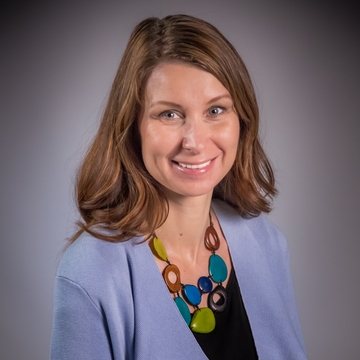New Mexico Approves Master of Science in Anesthesia Program at UNM

The Need to be SURE
UNM Program Targets Substance Abuse Disorder
The UNM Health Sciences Center has long been home to a variety of research and educational initiatives that are taking aim at the substance abuse epidemic sweeping through New Mexico.
The new Substance Use Research and Education Center (SURE) brings together collaborators from different disciplines to share their expertise and develop new strategies for tackling the problem.
"It really encompasses a body of collaborations across departments here at the HSC, on Main Campus and at the state level," says center director Ludmila Bakhireva, MD, PhD, a professor in the College of Pharmacy with cross-appointments in the School of Medicine.
Partners include researchers in Pediatrics, Internal Medicine, OB-GYN, Family & Community Medicine, Neurosciences and Psychiatry & Behavioral Sciences, as well as the Colleges of Nursing and Population Health.
"The Center provides a platform for interdisciplinary efforts in the field of substance use disorders to crystallize in all three areas of academic mission - scholarship, education and professional service," she says.
The SURE Center, which was established earlier this year, is also collaborating at the state level with the New Mexico Pharmacists Association, the Department of Health, the Board of Pharmacy, the Mind Research Network and the New Mexico Poison Control Center, Bakhireva says. "It enables us to build outreach programs in substance abuse areas more efficiently and reach patients in rural and medically underserved areas."
These partnerships could lead to new strategic alliances in substance use disorder (SUD) research, provide a platform for junior faculty mentorship and bring preclinical, translational and clinical SUD prevention and treatment research programs to New Mexico.
The center also has educational goals, she says. Following recommendations from the American College of Pharmacy Education and the American Pharmaceutical Association, the center will help update curricular guidelines for pharmacy students regarding pain management, safe opioid prescribing practices and harm reduction and overdose prevention strategies.
"I'm hoping to further enhance our already strong curriculum through horizontal and vertical integration of substance use-related themes, look into certificate programs in this field for our students and achieve national recognition," Bakhireva says.
"I think that would boost our recruitment of talented students."
The SURE Center's efforts could make a direct impact in reducing deaths from prescription opioid overdoses, because pharmacists are often the most available health care provider in rural and underserved areas, Bakhireva says. "We are trying to provide infrastructure support and peer-to-peer training to community pharmacists to be more actively engaged in these harm reduction strategies."
As an example, she says, when pharmacists dispense opioid painkillers, they are often reluctant to mention the overdose risk and to suggest that the patient also receive a dose of naloxone, a drug proven to save lives by rapidly reversing overdose symptoms. In New Mexico, pharmacists have standing orders mechanism to dispense naloxone without a prescription from another provider, where warranted.
"Pharmacists don't want to inadvertently offend the patient," Bakhireva explains. "If you bring up 'overdose,' it might be too sensitive."
As an alternative, she suggests, "maybe a better way to say it is, 'You might have breathing difficulty. If you have the flu or COPD, these medications can slow down your breathing.' This takes the stigma out of it, because it's presented as a medical problem. Then, I think patients might be more receptive to the idea of having naloxone."
In a trial training for pharmacists using these alternative engagement strategies, "We were able to increase naloxone dispensing by pharmacists by three or four times," Bakhireva says. If that becomes the new standard, many more lives might be saved.